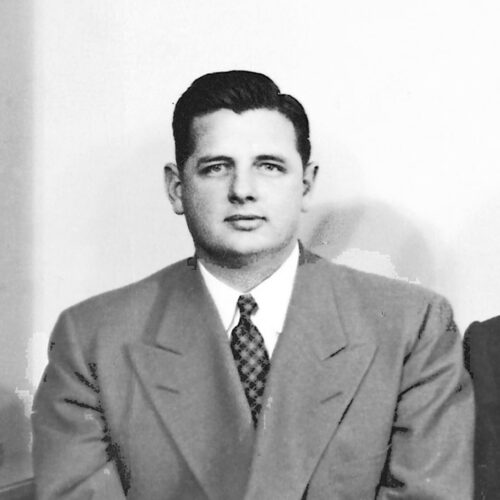
He rose from humble beginnings in Abilene to pioneering high-risk, high-reward investment with J.H. “Jock” Whitney.
By Liz Anderson Hilton
Photo courtesy of the Schmidt family
“I’m not looking for someone who has a lot of business experience. I’m looking for someone who has had a lot of experience with life.”
That’s the call Benno C. Schmidt Sr. ’36 received from philanthropist John Hay Whitney while working for the State Department in 1946. Whitney was putting up $10 million to form the country’s first private equity firm and he wanted Schmidt to join as a partner and run it.
Schmidt – age 33, a decorated war veteran, and former Texas Law faculty member – pushed back on Whitney’s offer because of inexperience. But Schmidt was just the optimistic, hard-working, quick mind Whitney wanted.
Born of humble beginnings in Abilene in 1913 to a working class, church-going family, Schmidt lost his father when he was just 12. Providing for the family meant that Schmidt’s mother worked as a secretary at a county welfare office and Schmidt picked up jobs in construction and on oil derricks.
Schmidt reportedly earned the highest academic average to date at Texas Law, which, in turn, landed him a seat on the faculty. With the attack on Pearl Harbor, Schmidt joined the war effort and rose to the rank of army colonel.
Returning stateside after the war, Schmidt and his Whitney partners pioneered high-risk capital funding unproven entrepreneurs in new industries. The Great Depression and years of a war-based economy had stifled credit markets. Banks simply were not in a mood to lend money for unproven businesses. In short, innovators needed funders. High-risk, high-reward investment, Schmidt said, was “the business of adventure.”
Schmidt pursued early investments in biotechnology, eventually chairing the Memorial Sloan Kettering Cancer Center and the first President’s Cancer Panel.
Through his 52-year partnership with Whitney, Schmidt helped launch the country’s thriving venture capital ecosystem that we have today.
